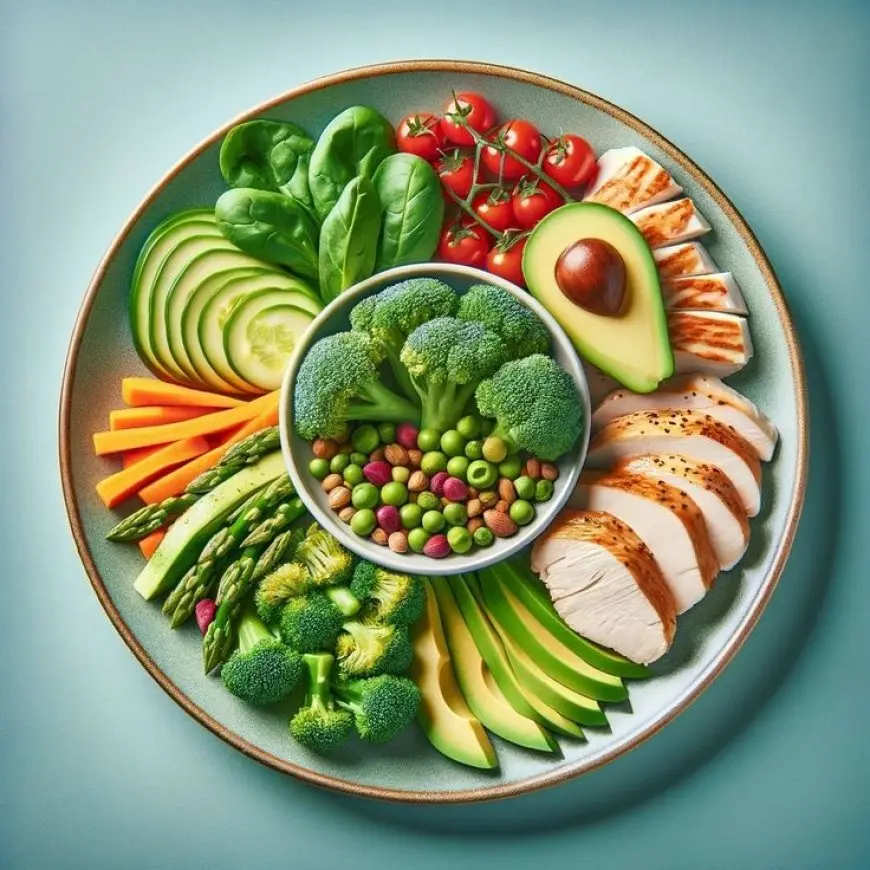The Basics of a Balanced Diet
The Basics of a Balanced Diet

A balanced diet is essential for maintaining good health, providing energy, and supporting the proper functioning of your body. It involves consuming the right amounts of nutrients from a variety of food groups to meet your body’s needs. Understanding the basics of a balanced diet can help you make healthier choices and improve your overall well-being.
Incorporate a Variety of Foods
A balanced diet includes a wide range of foods from all the major food groups: fruits, vegetables, grains, proteins, and dairy (or plant-based alternatives). Eating a variety of foods ensures you get a diverse range of nutrients, including vitamins, minerals, and fiber, which are essential for your body’s functions.
Focus on Fruits and Vegetables
Fruits and vegetables should form a significant part of your diet. They are rich in vitamins, minerals, and antioxidants that help protect your body from diseases. Aim to include a colorful assortment of fruits and vegetables to maximize the health benefits. Fresh, frozen, or canned options can all be nutritious choices.
Choose Whole Grains
Whole grains, such as brown rice, oats, quinoa, and whole wheat bread, are an important source of energy. They are high in fiber, which aids digestion and helps maintain a healthy weight. Opt for whole grain options instead of refined grains to gain more nutrients and sustain energy levels throughout the day.
Include Lean Proteins
Protein is essential for building and repairing tissues, as well as supporting muscle and immune health. Incorporate lean sources of protein, such as fish, poultry, eggs, beans, nuts, seeds, and tofu. If you consume red meat, choose lean cuts and eat it in moderation to maintain a healthy balance.
Don’t Forget Healthy Fats
Healthy fats, such as those found in avocados, nuts, seeds, and olive oil, are an important part of a balanced diet. These fats provide energy, support brain health, and help absorb certain vitamins. Limit saturated and trans fats, often found in fried and processed foods, as they can increase the risk of health problems.
Stay Hydrated
Water is a vital part of a balanced diet. Staying hydrated supports digestion, circulation, and temperature regulation. Make water your primary beverage, and limit sugary drinks like sodas and juices. Herbal teas and infused water can be great alternatives to add variety.
Limit Added Sugars and Salt
Too much sugar and salt in your diet can lead to health issues such as high blood pressure, heart disease, and obesity. Read food labels carefully, and try to reduce your intake of processed foods, which often contain high levels of these additives. Natural seasonings like herbs and spices can enhance the flavor of your meals without the need for extra salt.
Practice Portion Control
Even healthy foods can contribute to weight gain if eaten in large quantities. Paying attention to portion sizes can help you maintain a balanced diet without overeating. Using smaller plates, measuring servings, and listening to your body’s hunger signals can support better portion control.
Make Balanced Meals a Habit
Creating balanced meals doesn’t have to be complicated. Aim to fill half your plate with vegetables and fruits, a quarter with lean protein, and the remaining quarter with whole grains. Include a small portion of healthy fats to round out your meal.
A balanced diet is about moderation, variety, and making consistent, healthy choices. By understanding and applying these principles, you can support your body’s needs and lead a healthier, more energetic life.







